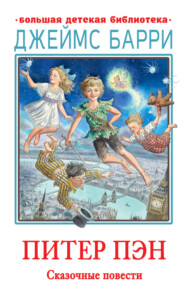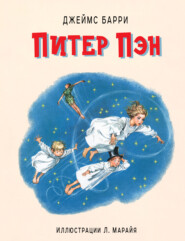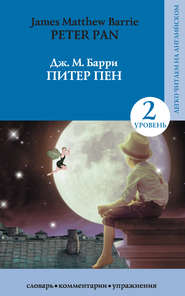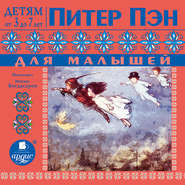По всем вопросам обращайтесь на: info@litportal.ru
(©) 2003-2024.
✖
The Little Minister
Настройки чтения
Размер шрифта
Высота строк
Поля
Gavin drew a great breath.
“That was not the reason,” he said.
The reason was now unmistakable.
“I was wrong,” said the Egyptian, a little alarmed; “you do not understand me at all.”
She returned to Nanny, and Gavin set off, holding his head high, his brain in a whirl. Five minutes afterwards, when Nanny was at the fire, the diamond ring on her little finger, he came back, looking like one who had just seen sudden death.
“I had forgotten,” he said, with a fierceness aimed at himself, “that to-morrow is the Sabbath.”
“Need that make any difference?” asked the gypsy.
“At this hour on Monday,” said Gavin, hoarsely, “I will be at the Kaims.”
He went away without another word, and Babbie 142 watched him from the window. Nanny had not looked up from the ring.
“What a pity he is a minister!” the girl said, reflectively. “Nanny, you are not listening.”
The old woman was making the ring flash by the light of the fire.
“Nanny, do you hear me? Did you see Mr. Dishart come back?”
“I heard the door open,” Nanny answered, without taking her greedy eyes off the ring. “Was it him? Whaur did you get this, lassie?”
“Give it me back, Nanny, I am going now.”
But Nanny did not give it back; she put her other hand over it to guard it, and there she crouched, warming herself not at the fire, but at the ring.
“Give it me, Nanny.”
“It winna come off my finger.” She gloated over it, nursed it, kissed it.
“I must have it, Nanny.”
The Egyptian put her hand lightly on the old woman’s shoulder, and Nanny jumped up, pressing the ring to her bosom. Her face had become cunning and ugly; she retreated into a corner.
“Nanny, give me back my ring or I will take it from you.”
The cruel light of the diamond was in Nanny’s eyes for a moment, and then, shuddering, she said, “Tak your ring awa, tak it out o’ my sicht.”
In the meantime Gavin was trudging home gloomily composing his second sermon against women. I have already given the entry in my own diary for that day: this is his: – “Notes on Jonah. Exchanged vol. xliii., ‘European Magazine,’ for Owen’s ‘Justification’ (per flying stationer). Began Second Samuel. Visited Nanny Webster.” There is no mention of the Egyptian.
Chapter Sixteen.
CONTINUED MISBEHAVIOUR OF THE EGYPTIAN WOMAN
By the following Monday it was known at many looms that something sat heavily on the Auld Licht minister’s mind. On the previous day he had preached his second sermon of warning to susceptible young men, and his first mention of the word “woman” had blown even the sleepy heads upright. Now he had salt fish for breakfast, and on clearing the table Jean noticed that his knife and fork were uncrossed. He was observed walking into a gooseberry bush by Susy Linn, who possessed the pioneer spring-bed of Thrums, and always knew when her man jumped into it by suddenly finding herself shot to the ceiling. Lunan, the tinsmith, and two women, who had the luck to be in the street at the time, saw him stopping at Dr. McQueen’s door, as if about to knock, and then turning smartly away. His hat blew off in the school wynd, where a wind wanders ever, looking for hats, and he chased it so passionately that Lang Tammas went into Allardyce’s smiddy to say —
“I dinna like it. Of course he couldna afford to lose his hat, but he should hae run after it mair reverently.”
Gavin, indeed, was troubled. He had avoided speaking of the Egyptian to his mother. He had gone to McQueen’s house to ask the doctor to accompany him to the Kaims, but with the knocker in his hand he changed his mind, and now he was at the place of meeting alone. It was a day of thaw, nothing to be heard from a distance but the swish of curling-stones through 144 water on Rashie-bog, where the match for the eldership was going on. Around him, Gavin saw only dejected firs with drops of water falling listlessly from them, clods of snow, and grass that rustled as if animals were crawling through it. All the roads were slack.
I suppose no young man to whom society has not become a cheap thing can be in Gavin’s position, awaiting the coming of an attractive girl, without giving thought to what he should say to her. When in the pulpit or visiting the sick, words came in a rush to the little minister, but he had to set his teeth to determine what to say to the Egyptian.
This was because he had not yet decided which of two women she was. Hardly had he started on one line of thought when she crossed his vision in a new light, and drew him after her.
Her “Need that make any difference?” sang in his ear like another divit, cast this time at religion itself, and now he spoke aloud, pointing his finger at a fir: “I said at the mud house that I believed you because I knew you. To my shame be it said that I spoke falsely. How dared you bewitch me? In your presence I flung away the precious hours in frivolity; I even forgot the Sabbath. For this I have myself to blame. I am an unworthy preacher of the Word. I sinned far more than you who have been brought up godlessly from your cradle. Nevertheless, whoever you are, I call upon you, before we part never to meet again, to repent of your – ”
And then it was no mocker of the Sabbath he was addressing, but a woman with a child’s face, and there were tears in her eyes. “Do you care?” she was saying, and again he answered, “Yes, I care.” This girl’s name was not Woman, but Babbie.
Now Gavin made an heroic attempt to look upon both these women at once. “Yes, I believe in you,” he said to them, “but henceforth you must send your money to 145 Nanny by another messenger. You are a gypsy and I am a minister; and that must part us. I refuse to see you again. I am not angry with you, but as a minister – ”
It was not the disappearance of one of the women that clipped this argument short; it was Babbie singing —
“It fell on a day, on a bonny summer day,
When the corn grew green and yellow,
That there fell out a great dispute
Between Argyle and Airly.
“The Duke of Montrose has written to Argyle
To come in the morning early,
An’ lead in his men by the back o’ Dunkeld
To plunder the bonny house o’ Airly.”
“Where are you?” cried Gavin in bewilderment.
“I am watching you from my window so high,” answered the Egyptian; and then the minister, looking up, saw her peering at him from a fir.
“How did you get up there?” he asked in amazement.
“On my broomstick,” Babbie replied, and sang on —
“The lady looked o’er her window sae high,
And oh! but she looked weary,
And there she espied the great Argyle
Come to plunder the bonny house o’ Airly.”
“What are you doing there?” Gavin said, wrathfully.
“This is my home,” she answered. “I told you I lived in a tree.”
“Come down at once,” ordered Gavin. To which the singer responded —
“‘Come down, come down, Lady Margaret,’ he says;
‘Come down and kiss me fairly
Or before the morning clear day light
I’ll no leave a standing stane in Airly.’”

















